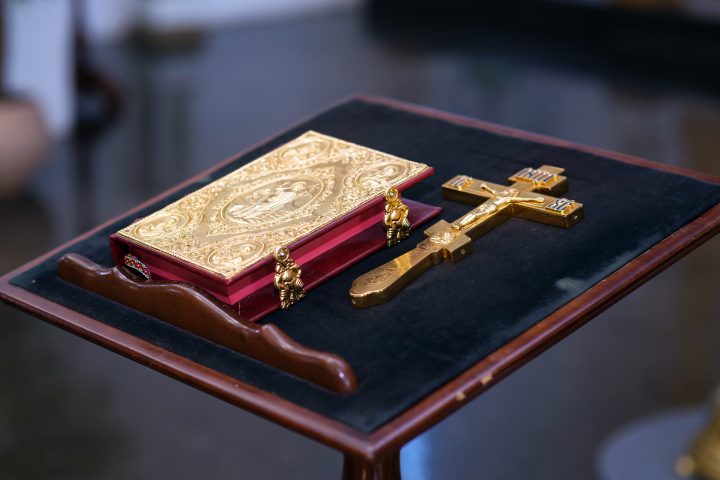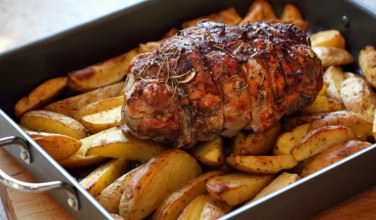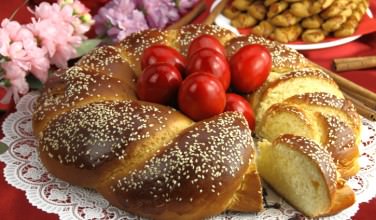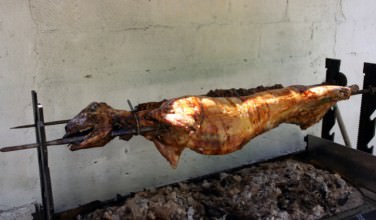Great Lent – Revered Part of the Greek Orthodox Year
Comments Off on Great Lent – Revered Part of the Greek Orthodox Year
 Great lent or the great fast is the preparation before Pascha and Holy Week. Weeks of preparation and the Lenten Triodion preside over the divine services performed for Great Lent. In Middle English, the translation of Lent is spring. The reason the word great is used is to differentiate Lent from other important fasts. Here’s more information about it:
Great lent or the great fast is the preparation before Pascha and Holy Week. Weeks of preparation and the Lenten Triodion preside over the divine services performed for Great Lent. In Middle English, the translation of Lent is spring. The reason the word great is used is to differentiate Lent from other important fasts. Here’s more information about it:
Purpose of Great Lent
Great Lent was previously called the pre-Pascha Fast. The original purpose was the fasting of Christian youths getting ready for confirmation and Christian conversions prior to baptism as preparations were made for entering the church. Eventually, Christians began using this time in preparation for the feast symbolizing the Resurrection of Christ. This is a living symbol for the entire life of man.
Structure of Great Lent
Cheesefare Sunday takes place on the first Monday after Forgiveness Sunday. According to John 1:43-51, this is the Sunday of Orthodoxy. Once Meatfare Sunday has passed, all meat is eliminated from the diet. After Cheesefare or Forgiveness Sunday, dairy is also eliminated. This is the beginning of the strict fast observed for Great Lent.
Observing Great Lent
The main characterizations of Great Lent are public and private prayer, abstaining from numerous foods, almsgiving or a gift of goods, food or money and personal improvement. Traditionally, dairy and meat products, oil, wine and fish are not consumed during Great Lent. Some traditions only eliminate vegetable oil and others olive oil.
Strict fasting is generally forbidden for both the Lord’s Day and the Sabbath, although oil and wine are acceptable on Saturdays and Sundays. When the Feast of the Annunciation occurs during Great Lent, observers can enjoy oil, wine and fish on this day. The expectation for Orthodox Christians is an additional concentration on private prayers. Prayers are also said more frequently.
Fasting with Prayer
According to the fathers, fasting without prayer is referred to as the fast of the demons because demons do not pray or eat. On the weekdays, a fast occurs when no celebration is held for the Divine Liturgy. During this time, receiving the Holy Mysteries is especially important. This is called the Liturgy of St. Gregory the Dialogist and the Liturgy of the Presanctified Gifts.
The Liturgy celebration takes place on Wednesdays and Fridays. A vesperal service is held including the distribution of the blood and body of Christ. The Divine Liturgy is celebrated on Saturdays and Sundays as usual. On Sunday, the Liturgy of St. Basil the Great takes place as opposed to St. John Chrysostom. Great Lent is celebrated for forty days including Sundays.
Great Lent officially starts seven weeks prior to Pascha on a Monday. The conclusion takes place on the night of Lazarus Saturday. The following week is called Passion Week, Holy Week or Great Week with fasting continuing until Pascha.
Weekday readings during Great Lent only come from the Old Testament. The focus is placed on Isaiah, Proverbs and Genesis. Holy week follows Great Lent. This precedes Pascha and begins with the week starting with Palm Sunday.
Great Lent is about renewing prayer, devotion, deeds, hearts and minds to conform with the teachings of Christ. This is a time to honor the great commandments of God through prayer and fasting.
Source:
Categorized in: Greek Easter Traditions, Greek Orthodox Religious Information
This post was written by Greek Boston
Share this Article:





